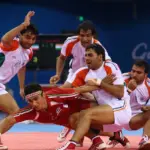Kabaddi, a game with old roots and rich social history, has acquired gigantic prevalence on the worldwide stage as of late. With its quick-moving interactivity and one-of-a-kind mix of physicality and system, kabaddi has caught the hearts of millions of fans. Fundamental to the fair and smooth lead of this thrilling game are the arbitrators, whose job is urgent in keeping up with the respectability of the game. In this article, we dive into the universe of kabaddi refs, investigating their numbers, obligations, and importance in guaranteeing a cutthroat yet fair climate for players and observers the same.
The Evolution of Kabaddi Refereeing

Kabaddi, starting in old India, has progressed significantly from its conventional structure to the professional and normalized variant played today. With this evolution, the job of arbitrators has additionally changed. In its conventional structure, kabaddi was a town sport with approximately characterized rules and nearby officials. Not with standing, as Kabaddi acquired fame at public and global levels, a requirement for normalized refereeing arose.
How Many Referees Are in Kabaddi?
In present-day kabaddi competitions, the standard number of referees officiating a match is seven. These referees are strategically situated to guarantee an extensive perspective on the game and to make precise decisions. The seven referees comprise:
Also Read – How many players are there in a Kabaddi Team?
Umpire: Overseeing Fairness and Direct
At the core of each kabaddi match stands the focal umpire, a figure of power responsible for maintaining the respectability of the game and ensuring that it unfolds reasonably and smoothly. Positioned on the edge of the playing region, the umpire commands an all-encompassing perspective on the field, empowering them to screen each feature of the game closely. Their job extends past implementing the rules; they go about as arbitrators, decision-makers, and custodians of the game’s spirit.
The focal umpire’s responsibilities are diverse and requesting. One of their most basic tasks is granting points, a task that requires an astute understanding of the game’s rules and a sharp eye for assessing whether a raider has successfully contacted a rival or contacted out of bounds. Decisions with respect to the outcome of a raid can significantly impact the direction of the match, making the umpire’s job urgent in deciding the game’s champ.
Furthermore, the focal umpire declares players “out” when they abuse the rules, such as stepping out of bounds or neglecting to get back to their half within the stipulated time. This requires speedy reasoning and precise judgment, as the speed of the game leaves no space for hesitation. Additionally, the umpire serves as the watchman of the game clock, checking the match term and signaling the finish of every half or the whole game. Convenient execution of this job ensures that the match progresses within the designated time limits, improving the overall experience for players and spectators the same.
Assistant Umpire: A Collaborative Effort
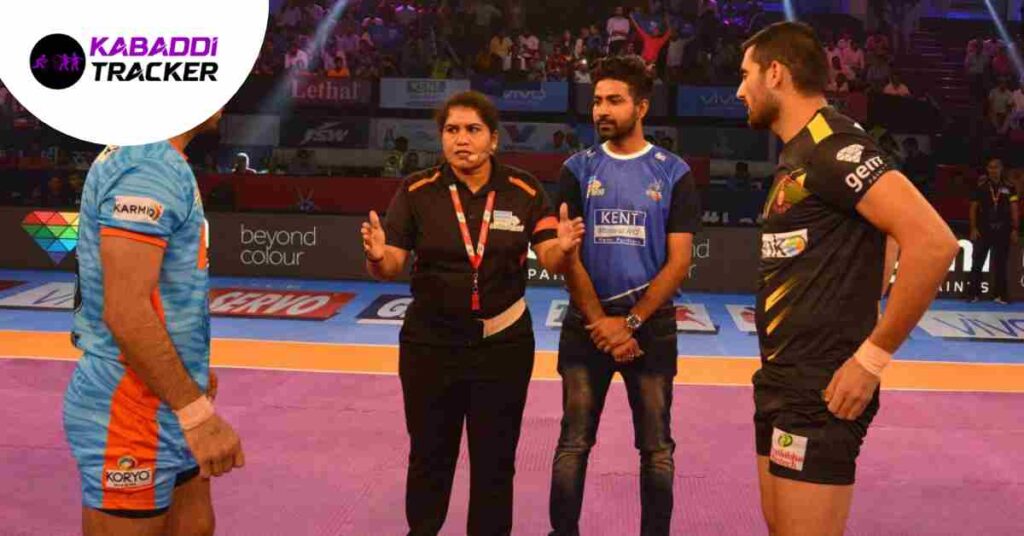
Positioned on one side of the playing area, the assistant umpire complements the central umpire’s efforts by providing additional viewpoints and insights that contribute to fair decision-making. This job is particularly crucial in situations where the central umpire’s view may be obstructed, such as when players cluster together during a raid. The assistant umpire’s sharp observation skills and ability to provide real-time input assist with ensuring that accurate calls are made, maintaining the believability of the match’s outcome.
The collaboration between the central umpire and the assistant umpire exemplifies the intricate teamwork expected in officiating kabaddi. Their synchronized efforts enhance the accuracy of decisions, decrease the probability of errors, and foster a sense of trust among players, coaches, and spectators in the officiating process.
Scorer: Tracking Points and Progress
In the background, however equally vital to the game’s conduct, is the scorer. Responsible for meticulously tracking the points scored by each team, the scorer ensures that the score displayed on the scoreboard accurately reflects the match’s progression. In a sport where each point matters, this job demands precision and attention to detail.
The scorer’s work extends beyond the simple recording of points. They must also monitor the number of players on each team, particularly during moments of team-based violations that result in players being declared out. Their accuracy contributes to maintaining an in any event, playing field and a sense of fairness throughout the match.
In addition, the scorer’s prompt updates allow players, coaches, and spectators to stay informed about the ongoing match status. This real-time information adds to the energy and engagement of the audience, enhancing the overall survey insight.
Also Read – List Of Kabaddi Academy in India
Timekeeper: Mastering Match Durations
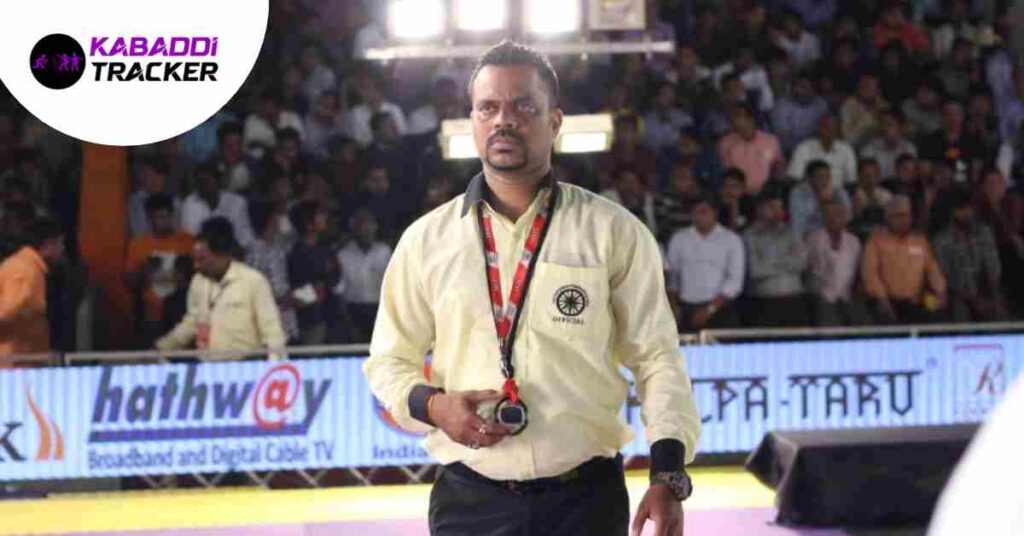
In the realm of kabaddi, using time effectively is paramount. Enter the timekeeper, a figure responsible for overseeing the match duration and signaling the finish of each half or the whole game. The timekeeper’s job intertwines with that of the central umpire, ensuring that the game adheres to the stipulated time limits without any disruptions.
The precision of the timekeeper’s work is essential, as any deviation from the set time constraints can impact the musicality of the game and the players’ strategies. By closely collaborating with the central umpire, the timekeeper helps maintain the match’s stream and intensity, improving the spectator experience and allowing players to showcase their skills inside a structured timeframe.
Raider Referee: Focusing on Attack Strategies
The raider referee, positioned near the raider’s finish of the court, assumes a specialized job focused on the dynamics of attacking manoeuvres. At the point when a raider ventures into the opponent’s region to tag defenders and return safely, the raider referee closely observes each move. This referee’s judgment is crucial in deciding if the raider successfully tagged an opponent and whether they managed to get back to their half without being held.
The raider referee’s responsibilities stretch out to checking in the event that a defender successfully halted the raider’s progress. Thusly, they contribute to fair decision-making, forestalling situations where a raider may be unjustly declared out or credited with a point.
Defender Referee: Adjudicating Defensive Actions
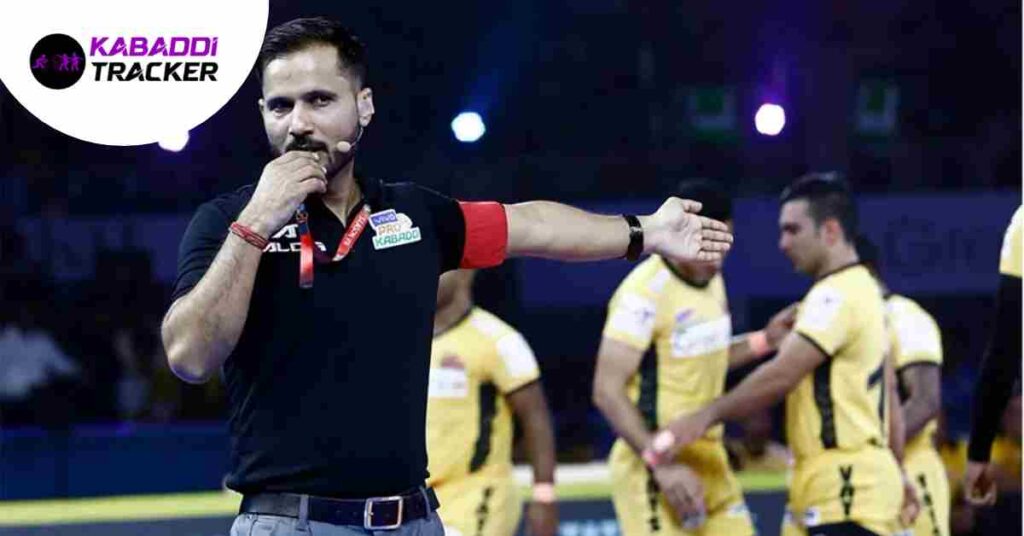
On the opposite finish of the court, the defender referee assumes the job of adjudicating defensive actions. As defenders strive to thwart the raider’s advances and keep them from getting back to their halves, the defender referee observes closely. Their judgments are instrumental in deciding if defenders successfully held the raider or on the other hand in the event that the raider managed to escape their grasp.
By accurately assessing these outcomes, the defender referee ensures that the defensive strategies utilized by each team are fairly evaluated. This job prevents any biases or inaccuracies in decision-making, maintaining the match’s honesty.
Video Referee: Harnessing Technology for Fairness
In select prominent kabaddi tournaments, a video referee is acquainted with enhancing the accuracy of decisions through the utilization of technology. Outfitted with access to video footage, the video referee can survey crucial decisions made by the on-field referees in contentious situations. This addition safeguards against potential errors and ensures that the right call is made, ultimately contributing to a just outcome.
The video referee’s presence reflects the sport’s embrace of technology to maintain fairness and maintain the validity of the game. By providing a second layer of scrutiny, the video referee complements the efforts of the on-field officials and bolsters the overall quality of officiating.
Responsibilities of Kabaddi Referees
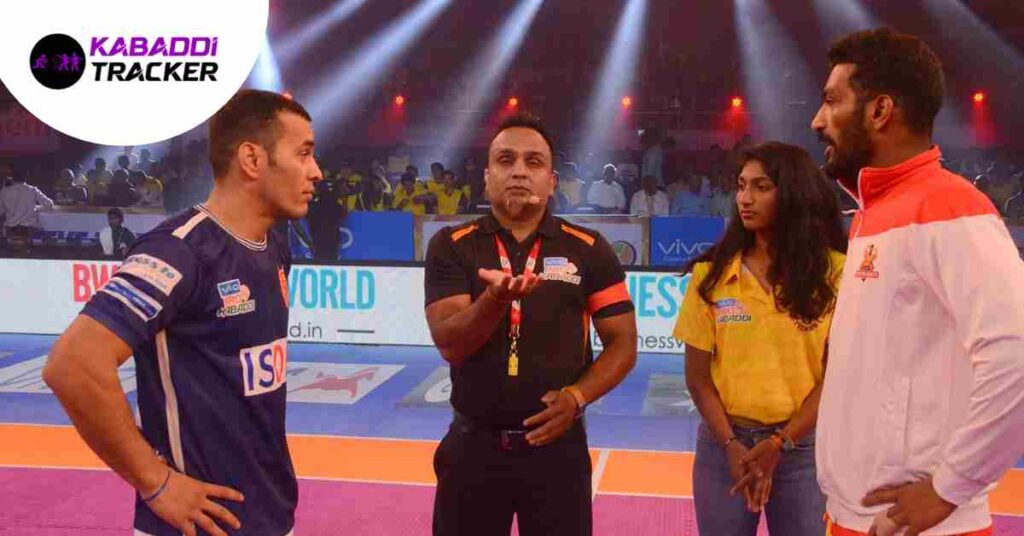
The responsibilities of kabaddi referees stretch out far beyond just enforcing the rules. They are entrusted with maintaining the spirit of the game and ensuring a level playing field for the two teams. Some of their key responsibilities include:
- Enforcing Rules: Referees are responsible for enforcing the rules of kabaddi and making real-time decisions regarding points, outs, and other game-related matters.
- Ensuring Fair Play: Referees must ensure that players adhere to the principles of fair play, penalizing any unsportsmanlike conduct or fouls that may give a team an unfair advantage.
- Player Safety: Referees play a pivotal job in ensuring the safety of players on the field. They must immediately address any dangerous or reckless actions that could lead to injuries.
- Using time effectively: There isn’t a moment to spare in kabaddi, and referees are responsible for managing the match duration accurately, signaling the start and end of halves and the match itself.
- Communication: Successful communication with players, coaches, and other officials is crucial. Referees must clearly convey their decisions and address any concerns raised by stakeholders.
Significance of Kabaddi Referees
Kabaddi referees stand firm on an extraordinary footing in the sport, acting as the guardians of its uprightness and fairness. Their decisions can impact the outcome of a match, making their job indispensable. By impartially enforcing the rules, they create an environment where skill, strategy, and teamwork decide the champ, rather than treachery or rule violations.
Furthermore, referees play a job in educating the two players and spectators about the nuances of the game. Through their decisions and explanations, they contribute to a more profound understanding of kabaddi’s intricacies, thereby enhancing the overall fan insight.
In the dynamic and physically demanding universe of kabaddi, referees play a pivotal job in maintaining the essence of the sport. With their presence on the field, the game maintains its serious spirit while adhering to a strict set of principles.
Through years of evolution, kabaddi has embraced the concept of standardized officiating, ensuring that each match is a genuine test of skill, strategy, and teamwork. As the sport continues to capture global attention, the job of kabaddi referees remains an essential cornerstone in shaping its present and future.
